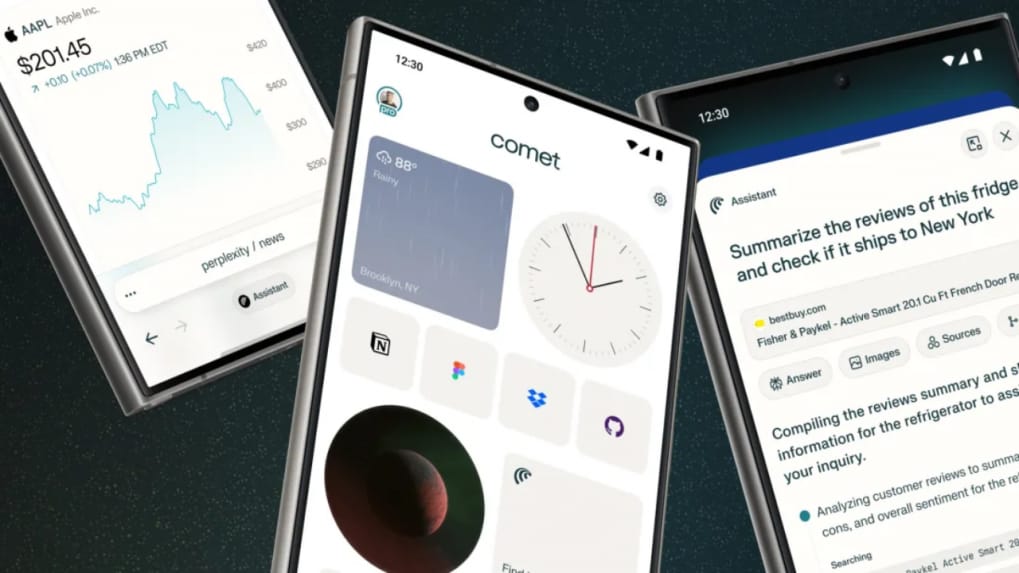Perplexity launches Comet AI browser on Android, bringing desktop features to mobile
As companies attempt to challenge established players like Chrome and Safari, security concerns persist.
ADVERTISEMENT
Perplexity, the AI search startup, has released its Comet browser on Android, bringing the majority of its desktop functionality to mobile users. The browser, first introduced on desktop in July, is built around AI-powered search and task handling.
Android users can now set Perplexity as their default search engine, reference open tabs when asking questions, and use voice mode to query the assistant about multiple tabs at once. The browser can also generate summaries across all open tabs, offering a consolidated view of information.
As per a report by TechCrunch, Perplexity says Comet is capable of researching and shopping on a user’s behalf, with complete visibility of the assistant’s actions. The Android version additionally includes a built-in ad blocker.
The company plans to roll out further features in the coming weeks. These include a conversational agent that can search across websites and take actions, shortcuts for quicker assistant commands, and a fully fledged password manager.
Earlier this month, Perplexity upgraded the desktop version of Comet Assistant to handle more complex and longer-running tasks, such as transferring website data into spreadsheets.
Although Android is the first mobile platform to receive the new browser, Perplexity confirms an iOS release is on the way. The company says Android was prioritised due to strong interest from carriers and device manufacturers seeking to integrate Comet into their products, though no new partnerships were announced. Perplexity already has an agreement with Motorola to preload the app on its devices, but it has not clarified whether this will extend to the browser.
The AI browser space has grown increasingly competitive, with OpenAI, Opera and Atlassian-owned The Browser Company all developing AI-driven alternatives—though most remain desktop-first. Arc Search, launched last year by The Browser Company, has seen few mobile updates, while its new browser, Dia, has yet to appear on mobile.
As companies attempt to challenge established players like Chrome and Safari, security concerns persist. Experts have warned about vulnerabilities in AI agents, and in October Perplexity acknowledged that new, AI-enabled attack methods will require a fundamental rethink of browser security.

